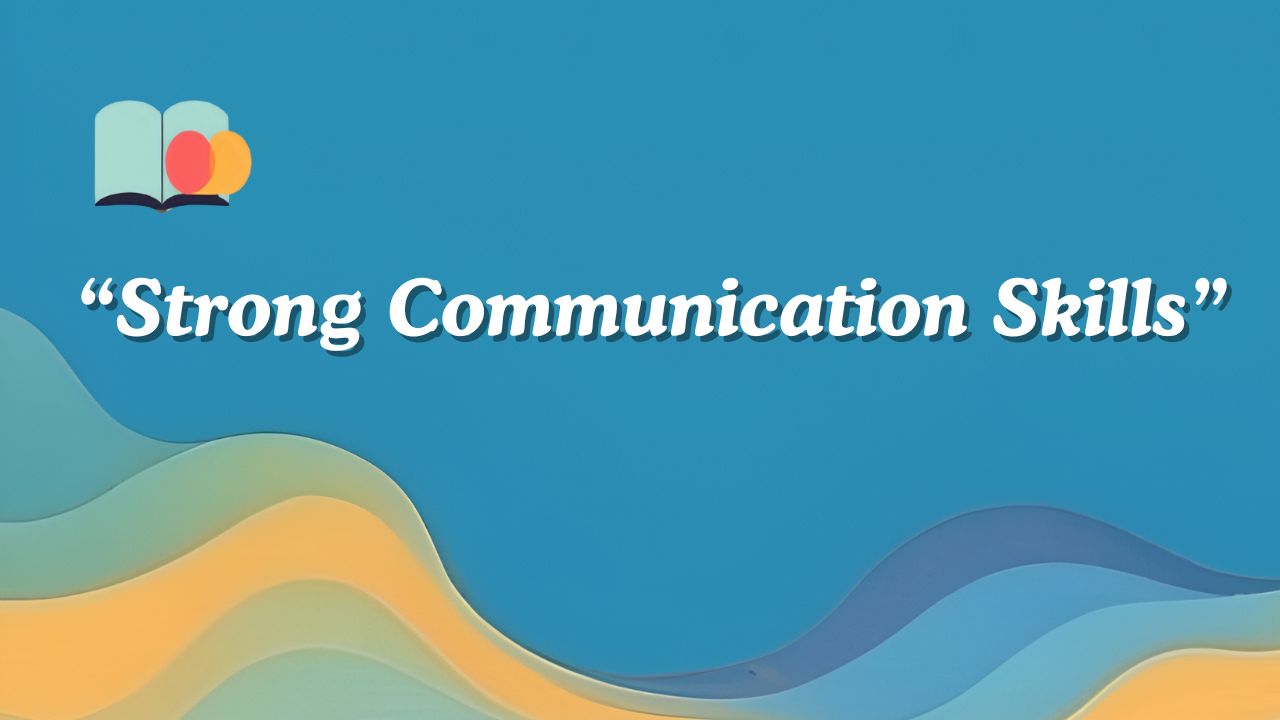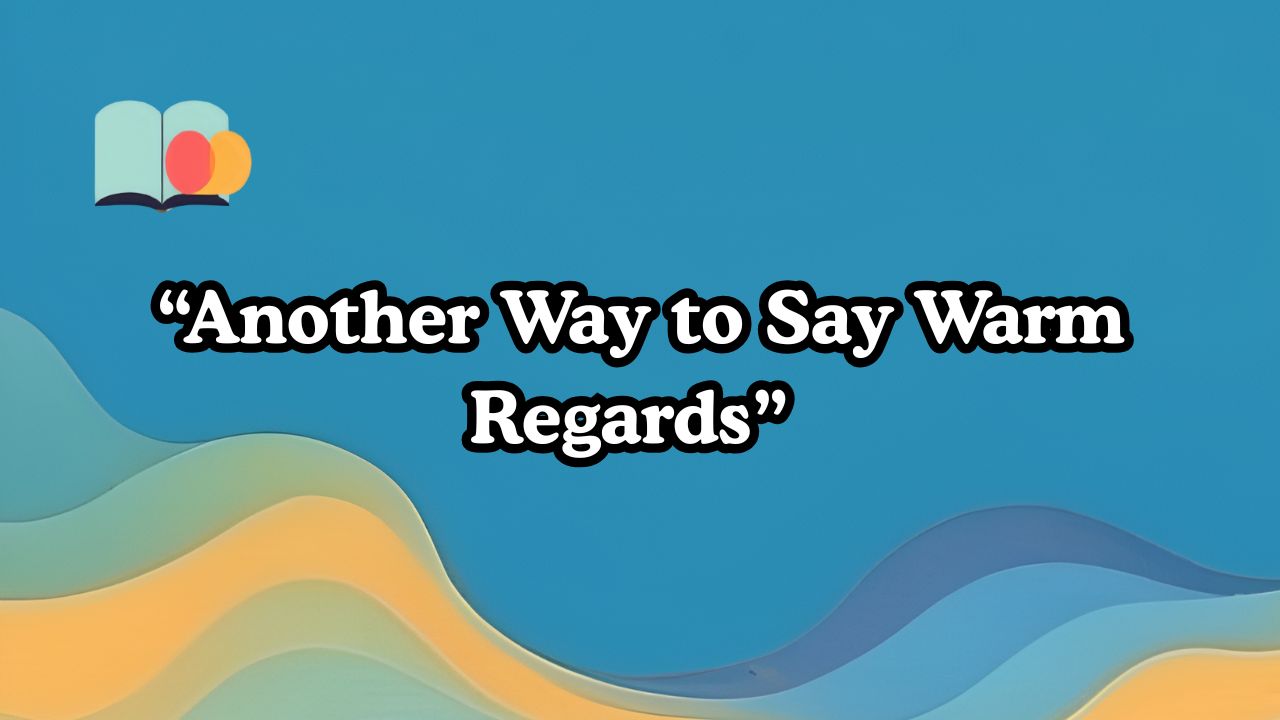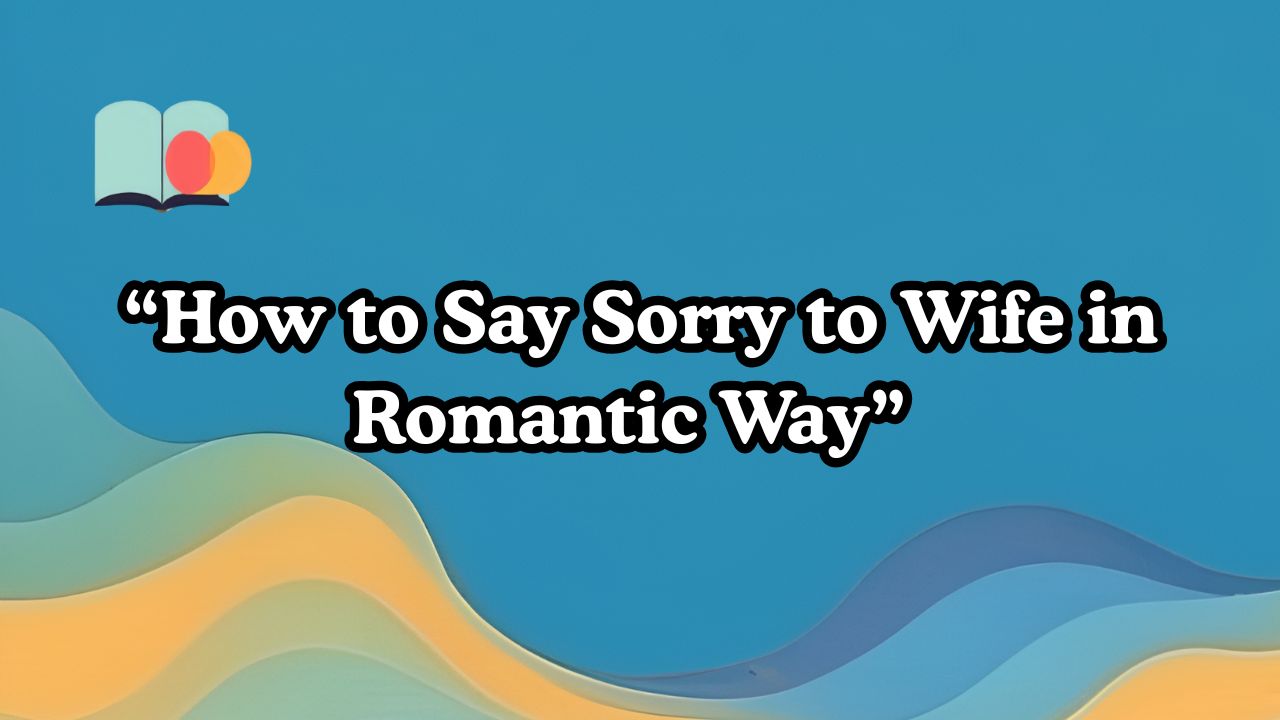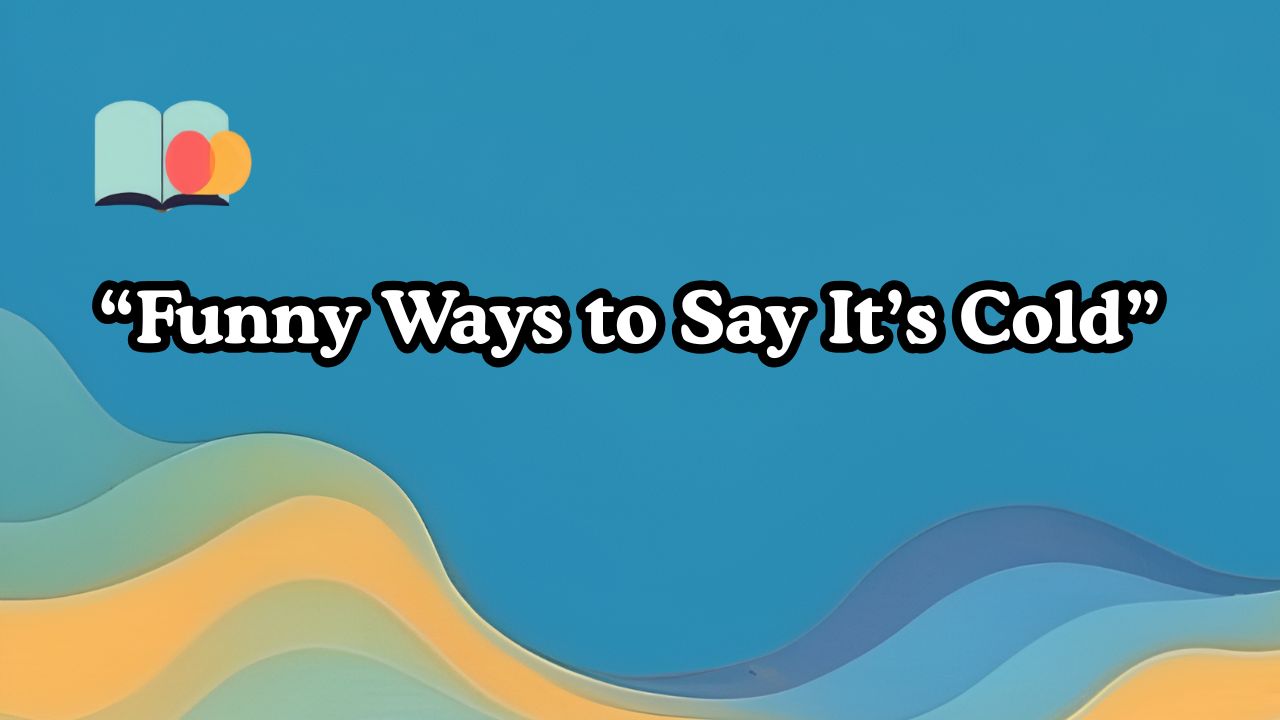Ever had trouble explaining how well you connect with others? Saying “strong communication skills” can seem too simple. Whether you’re writing a resume or talking to someone, new ways to say it can help you stand out. This guide offers 113 creative phrases to say instead of “strong communication skills.”
We cover different places like work and school. Here’s a sneak peek:
- Articulate communicator
- Persuasive orator
- Empathetic listener
- Confident presenter
- Collaborative conversationalist
Let’s explore exciting ways to show you can connect, persuade, and inspire!
Why Alternatives to “Strong Communication Skills” Matter
Using different phrases shows you’re precise and unique. On a resume, saying “eloquent speaker” gets more attention than just saying you’re good at talking. In interviews, calling yourself a “compelling storyteller” can make you more interesting.
These phrases also match the situation better. We’ve sorted 113 phrases for different places, with examples and tips to help you shine.
Formal & Professional Alternatives
For a polished look, these phrases are great for resumes, LinkedIn, or work emails. They highlight your clear speaking, professionalism, and leadership.
Professional Communication Phrases (20 Alternatives)
- Articulate communicator: Clearly expresses ideas with confidence.
Example: “As an articulate communicator, I streamlined team updates to boost project efficiency.” - Persuasive orator: Convinces others with compelling arguments.
Example: “Her persuasive oratory skills secured stakeholder buy-in for the new initiative.” - Concise presenter: Delivers information clearly and briefly.
Example: “As a concise presenter, I distilled complex data into actionable insights.” - Confident speaker: Commands attention with poise.
Example: “His confident speaking style energized the boardroom during strategy meetings.” - Effective negotiator: Resolves conflicts with clear dialogue.
Example: “As an effective negotiator, I finalized a win-win contract with key clients.” - Compelling storyteller: Engages audiences with vivid narratives.
Example: “Her compelling storytelling made the sales pitch unforgettable.” - Strategic communicator: Aligns messaging with goals.
Example: “As a strategic communicator, I crafted campaigns that doubled engagement.” - Eloquent speaker: Uses refined language to inspire.
Example: “His eloquent speech rallied the team during tough times.” - Diplomatic conversationalist: Navigates discussions with tact.
Example: “As a diplomatic conversationalist, I resolved team disputes smoothly.” - Engaging presenter: Captivates listeners with dynamic delivery.
Example: “Her engaging presentations boosted webinar attendance by 30%.” - Polished communicator: Delivers messages with professionalism.
Example: “As a polished communicator, I represented the company at national conferences.” - Influential speaker: Inspires action through words.
Example: “His influential speaking drove record-breaking fundraiser donations.” - Clear articulator: Expresses ideas with precision.
Example: “As a clear articulator, I simplified technical jargon for clients.” - Dynamic orator: Energizes audiences with enthusiasm.
Example: “Her dynamic oratory skills made training sessions highly interactive.” - Collaborative communicator: Fosters teamwork through dialogue.
Example: “As a collaborative communicator, I aligned cross-functional teams.” - Empathetic negotiator: Balances firmness with understanding.
Example: “His empathetic negotiation style secured long-term partnerships.” - Professional liaison: Bridges gaps between teams or clients.
Example: “As a professional liaison, I ensured seamless client communication.” - Authoritative speaker: Commands respect with confident delivery.
Example: “Her authoritative speaking style led successful project pitches.” - Astute communicator: Reads situations to tailor messages.
Example: “As an astute communicator, I adapted pitches to diverse audiences.” - Visionary presenter: Inspires with forward-thinking ideas.
Example: “His visionary presentations shaped the company’s strategic roadmap.”
💡 Expert Tip: On resumes, pair these phrases with measurable results (e.g., “As a persuasive orator, I increased client retention by 15%”) to add impact.
Similar Posts
Academic & Formal Writing Phrases (15 Alternatives)
Perfect for essays, research presentations, or academic networking, these phrases highlight intellectual clarity and professionalism.
- Lucid writer: Crafts clear, logical arguments.
Example: “As a lucid writer, I authored a thesis that earned top honors.” - Articulate scholar: Conveys complex ideas simply.
Example: “Her articulate scholarship made quantum theory accessible to peers.” - Cogent debater: Presents arguments persuasively.
Example: “As a cogent debater, I won the national debate championship.” - Erudite communicator: Shares knowledge with sophistication.
Example: “His erudite communication impressed the academic panel.” - Precise expositor: Explains ideas with exactness.
Example: “As a precise expositor, I clarified statistical models for students.” - Logical articulator: Structures thoughts coherently.
Example: “Her logical articulation strengthened the research proposal.” - Insightful presenter: Offers deep, clear insights.
Example: “As an insightful presenter, I engaged faculty with fresh perspectives.” - Fluent orator: Speaks smoothly in academic settings.
Example: “His fluent oratory made conference talks memorable.” - Succinct writer: Conveys ideas briefly yet powerfully.
Example: “As a succinct writer, I published concise journal articles.” - Analytical communicator: Breaks down complex topics clearly.
Example: “Her analytical communication simplified data for grant proposals.” - Persuasive scholar: Convinces with evidence-based arguments.
Example: “As a persuasive scholar, I secured funding for my research.” - Eloquent academic: Uses refined language in scholarly work.
Example: “His eloquent academic writing earned journal recognition.” - Coherent presenter: Delivers structured, clear talks.
Example: “As a coherent presenter, I taught complex theories effectively.” - Incisive communicator: Cuts through complexity with clarity.
Example: “Her incisive communication clarified policy implications.” - Articulate researcher: Shares findings with precision.
Example: “As an articulate researcher, I presented data to global audiences.”
✅ Best For: Use these in academic CVs, conference talks, or grant applications to project expertise and clarity.
Social & Emotional Alternatives
These phrases shine in personal interactions, emails, or heartfelt conversations, highlighting empathy and connection.
Empathetic & Heartfelt Phrases (18 Alternatives)
- Empathetic listener: Truly hears and understands others.
Example: “As an empathetic listener, I supported my friend through tough times.” - Warm conversationalist: Creates a welcoming dialogue.
Example: “Her warm conversational style made everyone feel included.” - Heartfelt communicator: Shares emotions sincerely.
Example: “His heartfelt communication deepened team trust.” - Compassionate speaker: Conveys care through words.
Example: “As a compassionate speaker, I comforted colleagues during stress.” - Engaging storyteller: Draws listeners in with emotional narratives.
Example: “Her engaging storytelling made family gatherings unforgettable.” - Thoughtful communicator: Chooses words with care.
Example: “As a thoughtful communicator, I crafted a touching condolence note.” - Kind orator: Speaks with genuine warmth.
Example: “His kind oratory uplifted the community event.” - Sensitive conversationalist: Reads emotions to respond appropriately.
Example: “As a sensitive conversationalist, I eased team tensions.” - Genuine communicator: Connects authentically with others.
Example: “Her genuine communication built lasting friendships.” - Supportive listener: Offers attention and understanding.
Example: “As a supportive listener, I helped peers navigate challenges.” - Encouraging speaker: Uplifts others with words.
Example: “His encouraging speech motivated the team to persevere.” - Tactful communicator: Handles sensitive topics with grace.
Example: “As a tactful communicator, I resolved family disputes calmly.” - Inspiring conversationalist: Sparks positivity in dialogue.
Example: “Her inspiring conversational style motivated volunteers.” - Attentive communicator: Focuses fully on others’ words.
Example: “As an attentive communicator, I strengthened client relationships.” - Sympathetic orator: Expresses care in public speaking.
Example: “His sympathetic oratory resonated at the charity event.” - Cordial speaker: Maintains a friendly tone.
Example: “As a cordial speaker, I welcomed new team members warmly.” - Empathic presenter: Connects emotionally with audiences.
Example: “Her empathic presentation moved the audience to tears.” - Sincere communicator: Speaks with honesty and heart.
Example: “As a sincere communicator, I built trust with colleagues.”
⚠️ Mistake to Avoid: Avoid overly formal phrases in casual settings to prevent sounding distant or robotic.
Casual & Humorous Alternatives
For lighthearted texts, social media, or informal chats, these phrases add flair and fun while describing communication skills.
Playful & Fun Phrases (15 Alternatives)
- Chatty rockstar: Keeps conversations lively and fun.
Example: “As a chatty rockstar, I kept the party buzzing all night.” - Word wizard: Spins clever phrases effortlessly.
Example: “Her word wizardry made group chats hilarious.” - Talkative trailblazer: Leads conversations with energy.
Example: “As a talkative trailblazer, I got everyone laughing at the meetup.” - Banter boss: Masters witty exchanges.
Example: “His banter boss skills lit up the team lunch.” - Quip queen/king: Delivers quick, funny remarks.
Example: “As a quip queen, she owned every group text thread.” - Gabbing guru: Excels at casual, flowing chats.
Example: “His gabbing guru vibe made road trips unforgettable.” - Witty wordsmith: Crafts clever, humorous lines.
Example: “As a witty wordsmith, I nailed the roast speech.” - Charming chatterbox: Engages with irresistible charm.
Example: “Her charming chatterbox style won over the crowd.” - Snappy speaker: Delivers quick, sharp responses.
Example: “As a snappy speaker, I kept the podcast lively.” - Jovial jabberer: Brings joy to every conversation.
Example: “His jovial jabbering made coffee breaks hilarious.” - Sassy storyteller: Spins tales with playful attitude.
Example: “As a sassy storyteller, she had everyone in stitches.” - Lively conversationalist: Keeps talks upbeat and fun.
Example: “His lively conversational style sparked group debates.” - Cheeky communicator: Adds playful edge to talks.
Example: “As a cheeky communicator, I teased friends without offense.” - Fun-loving orator: Energizes crowds with humor.
Example: “Her fun-loving oratory rocked the talent show.” - Breezy banterer: Keeps chats light and entertaining.
Example: “As a breezy banterer, I made networking events a blast.”
✅ Best For: Use these in casual emails, social media bios, or friendly texts to show personality.
Communication Phrases by Tone
| Tone | Phrase | Best Context | Example Use |
|---|---|---|---|
| Professional | Persuasive orator | Resume, pitch meetings | Secured client deals with compelling pitches |
| Academic | Lucid writer | Essays, research talks | Authored a clear, award-winning thesis |
| Emotional | Empathetic listener | Personal conversations | Supported friends through heartfelt talks |
| Humorous | Witty wordsmith | Social media, casual chats | Kept group texts lively with clever quips |
Usage Tips for Strong Communication Alternatives
When to Use Each Type
- Professional phrases: Ideal for job applications, LinkedIn, or client emails. Use metrics (e.g., “increased sales by 20%”) to back them up.
- Academic phrases: Best for scholarly settings, like conferences or academic CVs. Pair with specific achievements (e.g., “published in X journal”).
- Emotional phrases: Perfect for personal emails, condolences, or team-building. Emphasize empathy to connect deeply.
- Humorous phrases: Great for informal settings like texts or social media. Keep tone light to avoid sounding unprofessional in formal contexts.
Cultural Considerations
- In formal settings (e.g., U.S. corporate culture), prioritize clarity and confidence over flowery language.
- In collectivist cultures (e.g., Japan, India), empathetic or collaborative phrases may resonate more.
- Avoid slang or humorous phrases in global professional contexts to prevent misinterpretation.
💡 Expert Tip: Tailor your phrase to the audience’s expectations. For example, “eloquent speaker” suits a CEO’s LinkedIn, while “chatty rockstar” fits a creative’s Instagram bio.
FAQ: Common Questions About Communication Phrases
What’s a better way to say “strong communication skills” on a resume?
Try “articulate communicator” or “persuasive orator” with examples like, “Led team meetings to align project goals, boosting efficiency by 25%.”
How do I show communication skills in an interview?
Use phrases like “collaborative communicator” and share stories, e.g., “I resolved a team conflict by facilitating open dialogue.”
Can I use humorous phrases professionally?
Stick to playful phrases like “witty wordsmith” in creative industries or informal settings, but avoid them in conservative fields like finance.
How do I adapt communication phrases for emails?
For professional emails, use “polished communicator.” For personal emails, try “heartfelt communicator” to convey warmth.
Why avoid “strong communication skills”?
It’s overused and vague. Specific phrases like “compelling storyteller” highlight unique strengths and grab attention.
Conclusion
Finding another way to say “strong communication skills” can elevate your resume, interview, or casual chats. With 113 alternatives—from “persuasive orator” to “chatty rockstar”—you can tailor your words to any context.
These phrases help you stand out while showing your ability to connect and inspire. Try them in your next email, LinkedIn update, or conversation, and see the difference!
Have a favorite phrase or a specific scenario you’d like help with? Share in the comments below—we’d love to hear from you!





